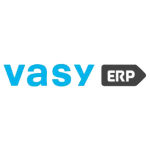TechnologyCounter provides genuine, unbiased real user reviews to help buyers make informed decisions. We may earn a referral fee when you purchase through our links, at no extra cost to you.
List of 15 Best ERP Software for Your Business
Showing 1 - 15 of 717 productsExperience streamlined, efficient financial management with Oracle Cloud ERP. Designed for businesses of all sizes, this powerful software offers a seamless solution for all your accounting and procurement needs. Say goodbye to complex and outdated s...Read Oracle Cloud ERP Reviews
Microsoft Dynamics 365 is a business management solution designed to streamline and enhance various aspects of a companys operations. From sales and marketing, to finance and supply chain management, Dynamics 365 offers a seamless and integrated appr...Read Microsoft Dynamics 365 Reviews
With 800+ Support Centers and 9 Lac+ Users, Marg ERP 9+ ensure that SMEs including retail, distribution and manufacturing business attains its target on time with an integrated, centralized control system that enables them to manage their entire down...Read Marg ERP 9+ Reviews
ORION Enterprise is a unique endeavor asset arranging arrangement that permits associations to easily coordinate divergent groups, capacities, cycles, and frameworks. 3i Infotech is a worldwide Information Technology organization focused on Empowerin...Read ORION ERP Reviews
Used by more than 5000 companies across the world. ERPNext is the worlds most advanced 100% opensource ERP Software. It is an open alternative to SAP, MS Dynamics and other market leaders at a relatively lower cost of ownership...Read ERPNext Reviews
GoodBooks ERP, which has been trusted by over 2500 clients for three decades, transforms business management with customizable modules that ensure seamless operations. From production and inventory management to sales, finance, and CRM, our user-frie...Read Goodbooks ERP Reviews
NEWTON ERP is an affordable, integrated business management solution that offers a comprehensive assortment of capabilities needed to run your business in a most effective fashion...Read Newton ERP Reviews
TYASuite Plug and Play cloud ERP software is a full-featured business management solution that offers you everything you need for your daily business operations...Read TYASuite Cloud ERP Reviews
Focus X ERP software by Focus Softnet is a business management solution that optimizes enterprise resource planning. It integrates finance, inventory, sales, procurement, HR, and more...Read Focus X Reviews
CREST is a fully integrated ERP product for Trading, Manufacturing & Service organizations to effectively manage their business operations...Read CREST ERP Reviews
Sage ERP for Plastic Industry is a powerful software that can assist in the management of your company. It is recognized as the top ERP service provider in India and offers convenient access to all aspects of business management from anywhere in the...Read Sage ERP Reviews
It allows organizations to efficiently manage employee attendance, time-off requests, and shifts, while also automating payroll processes across multiple countries. With advanced features such as geo-fencing and biometric integration, Ramco ERP ensur...Read Ramco ERP Reviews
Krisol ERP for Textile industry ties business the board capacities like arranging, materials the executives, request preparing, producing, buying, bookkeeping and money, HR, and thats just the beginning...Read Krisol ERP Reviews
Run Your Business From Anywhere You Are. Transition your Retail, Restaurant, Distribution Businesses digital way. We have made GST compliance, adoption simple & easy...Read Vasy ERP Reviews
Astral ERP is a solution that manages all aspects of a business, from procurement to dispatch. Its versatility allows it to be used on various devices, such as tablets, smartphones, desktops, and laptops. With Astral ERP, users have full control ove...Read Astral ERP Reviews
- What Is ERP Software?
- Importance of the Best ERP Software in India
- Top 10 ERP Software in India (2025 Comparison)
- What Are the Key Features to Look for in ERP Software?
- Benefits of Using the Best ERP Software in India
- ERP Software Market Trends in India
- What Business Tasks Can Be Optimized with ERP Software?
- Selecting the Best ERP System in India
- Things to Be Considered Before Buying ERP Software
- ERP Software Resources
The Buyer’s Guide For ERP Software
Choosing the right ERP software can bring a transformation to your business where finance, inventory, HR, sales, and supply chain integrate into one single system. And with so many ERP solutions being available, choosing the best ERP software for a business in India is a great question.
Here's a data-driven comparison of top ERP solutions covering their features, benefits, pricing, and industry suitability.
What Is ERP Software?
Enterprise Resource Planning (ERP) software helps businesses streamline operations, automate workflows, and centralize data across multiple departments.
Key Functions of ERP Software
-
Finance Management – Automates accounting, payroll, budgeting, and compliance.
-
Supply Chain Management (SCM) – Tracks inventory, procurement, and logistics.
-
Customer Relationship Management (CRM) – Enhances customer engagement and sales tracking.
-
Manufacturing & Production – Helps in demand forecasting, production planning, and quality control.
-
Human Resource Management (HRM) – Automates payroll, attendance, and employee records.
Real-World Example:
Tata Steel implemented SAP ERP to streamline supply chain management, reducing inventory costs by 30% and improving efficiency.
Importance of the Best ERP Software in India
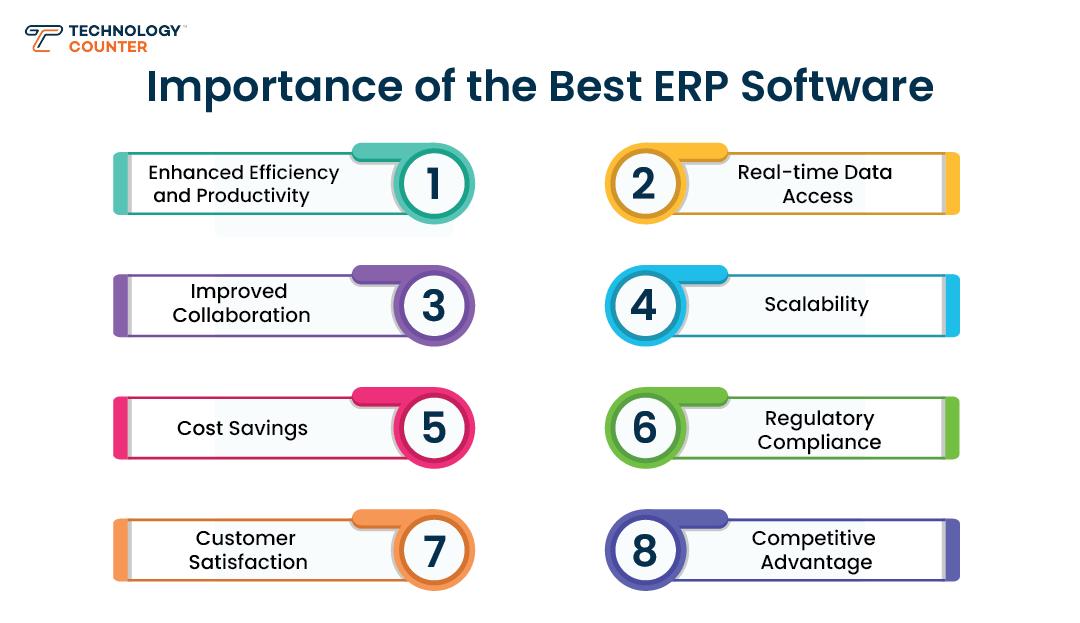 Selecting the best ERP software in India for your business is crucial for several reasons:
Selecting the best ERP software in India for your business is crucial for several reasons:
1. Enhanced Efficiency and Productivity
The best ERP Software in India streamlines business processes by integrating various functions into a single system. This reduces the need for manual data entry, minimizes errors, and automates repetitive tasks, allowing employees to focus on more strategic activities.
2. Real-time Data Access
Top ERP software in India provides real-time data access, enabling businesses to make informed decisions quickly. This timely information helps in forecasting, planning, and responding to market changes more effectively.
3. Improved Collaboration
With a unified ERP system, different departments can easily share information and collaborate. This enhances communication, reduces information silos, and promotes a more cohesive working environment.
4. Scalability
The best ERP software is scalable, meaning it can grow with your business. Whether you’re expanding your operations, adding new products, or entering new markets, a robust ERP system can accommodate these changes without significant overhauls.
5. Cost Savings
Although implementing an top ERP system can be a significant investment, it often leads to long-term cost savings. By improving efficiency, reducing errors, and optimizing resource management, businesses can lower operational costs and improve their bottom line.
6. Regulatory Compliance
Top ERP software in India helps businesses maintain compliance with industry standards and regulations. They provide accurate records, audit trails, and reporting capabilities, ensuring that your business adheres to legal and regulatory requirements.
7. Customer Satisfaction
By integrating customer relationship management (CRM) into the ERP system, businesses can better manage customer interactions, improve service delivery, and enhance customer satisfaction. Access to real-time customer data ensures that your team can provide timely and personalized support.
8. Competitive Advantage
Implementing the best ERP software in India can give your business a competitive edge. It allows you to operate more efficiently, respond quickly to market demands, and provide better service to your customers, all of which are crucial for staying ahead in a competitive market.
The importance of choosing the best ERP software in India lies in its ability to enhance efficiency, improve decision-making, foster collaboration, and provide scalability, all while saving costs and ensuring compliance. It’s a strategic investment that can drive significant growth and success for your business.
Case Study: Hindustan Unilever implemented SAP ERP, resulting in a 30% improvement in supply chain efficiency.
Top 10 ERP Software in India (2025 Comparison)
| ERP Software | Best For | Deployment | Pricing |
| SAP Business One | Large Enterprises | Cloud/On-Premise | ₹10L+ |
| Oracle Cloud ERP | MNCs & Global Operations | Cloud | ₹15L+ |
| Microsoft Dynamics 365 | SMEs & Large Enterprises | Cloud/Hybrid | ₹8L+ |
| ERPNext | Startups & SMEs | Cloud/Open-source | ₹3,000/user/month |
| Marg ERP 9+ | Retail & SMEs | On-Premise | ₹50,000+ |
| TYASuite Cloud ERP | Budget ERP for SMEs | Cloud | ₹1,000/user/month |
| ORION ERP | Manufacturing & Automotive | Cloud/On-Premise | Custom Quote |
| Goodbooks ERP | Small & Mid-sized Businesses | Cloud | ₹2,500/user/month |
| Focus X | Service-Based Businesses | Cloud/On-Premise | ₹3,500/user/month |
| Krisol ERP | Distribution & Warehousing | Cloud | Custom Quote |
Pro Tip: If you need highly customizable ERP, consider ERPNext (open-source) or Microsoft Dynamics 365.
What Are the Key Features to Look for in ERP Software?
It is essential for business leaders to understand the features that the best ERP software provides that their organization can make the most out of.
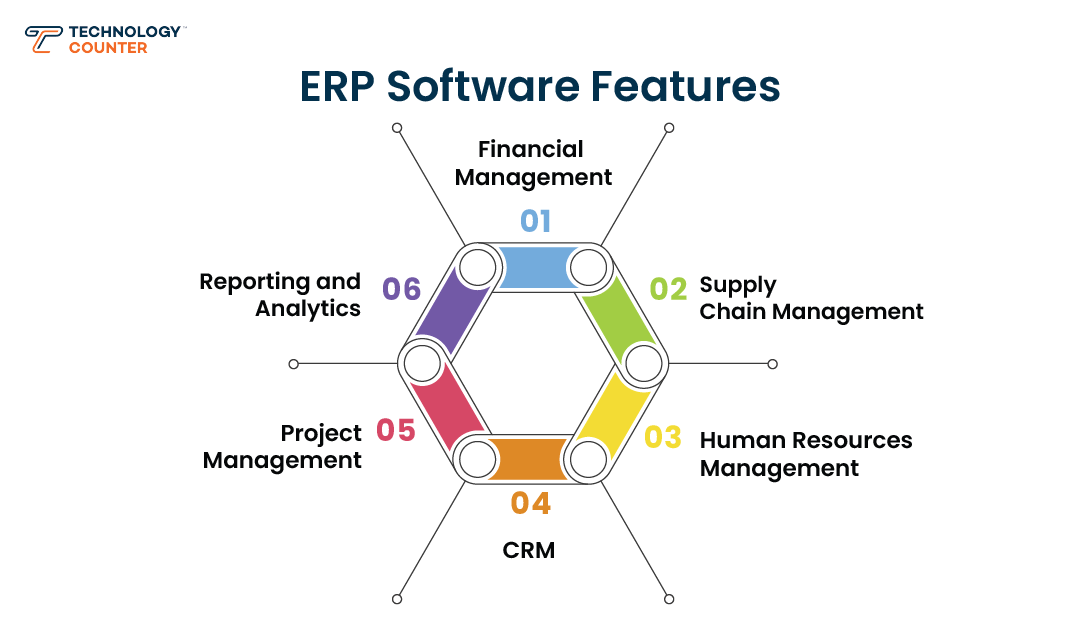
The following are the top features of ERP software for your business:
• Integration:
The integration feature of the ERP system makes this solution stand apart from other software solutions in the market. All the other software vendors claim that their system seamlessly integrates with third-party applications.
The enterprise resource planning software is a solution designed to work together. The top ERP software will seamlessly integrate with other systems to streamline the entire business operations.
This software solution will integrate all the advanced tools to gather, store, and evaluate world business data to make strategic data-driven business decisions. The cloud based ERP system will store the data of the entire organization to increase team collaboration and transparency.
• Automation:
Automation is one of the best features of the top ERP software that will help you streamline the work process. The modern ERP software with automation will automate your tedious tasks like punching orders, payroll, accounting, invoicing, and others.
Your workforce will not be overwhelmed with a huge amount of administrative tasks so focus on a more valuable task. The best ERP software will reduce manual errors because the process will have minimum interaction.
The software solution with automation will help business owners to achieve business goals quickly before the deadline.
• Data Analytics:
As discussed earlier, the ERP software will help business owners to gather, store, and process data of entire organizations. The ERP solution with analytics will help to understand the patterns and trends in your work process.
Spotting trends and patterns will help the business leader evaluate operational, client, production, and sales data. For example, the best ERP system will help your business forecast the demand, allocate budgets, and evaluate the human resource functions.
Data analytics features of ERP tools will give you detailed insights into your work process and help you spot the challenges in organizational productivity.
• Reports and analytics:
The business leaders and owners need to have a real-time tab on workforce performance. The enterprise resource planning software will give you customized business reports of every aspect as per your needs.
Furthermore, the top ERP software will customize the dashboard for you to have an overview of your business performance at a glance. A configurable ERP dashboard will give you a different graphical representation of each aspect to have an in-depth understanding of each business aspect.
• Customer Relationship Management (CRM):
Customer relationship management is essential for every business to enhance its brand image. The best SaaS ERP software will integrate CRM to centralize operations. Because ERP software with CRM will help to take orders and process the orders with ease.
The top ERP software with CRM software will help business function leaders design and execute effective customer experience strategies. ERP software solution will help businesses easily create campaigns, track customer lifecycle, and evaluate customer happiness or satisfaction. Enterprise resource planning ERP with CRM will help businesses to increase the customer retention rate.
• Business and work process tracking and visibility:
One of the best features of ERP software is that it offers better and more in-depth visibility. Supply chain visibility is one of the most common examples of this feature. The top ERP software will help business owners track the entire journey of raw materials to a finished product right from procurement to delivery.
All of this is possible because ERP has immense potential to integrate with other systems. As a reason, it has become easy for the entire team and departments to transfer information and track the materials with ease. The top ERP software will allow spotting future challenges like delays in procurement or manufacturing or out-of-stock situations.
ERP system will track every aspect of business sales, production updates, workforce efficiency, and other aspects. furthermore, the best ERP software will automatically remind you about important events to ensure all your crucial tasks are accomplished.
• Accounts:
Finances are a crucial and valuable asset for every organization irrespective of size, sector, or type. As a reason, the ERP software will have accounting tools to simplify accounts payable, receivable, asset, risk, and task management.
The best enterprise resource planning software will allow you to manage and process multiple currencies with ease. The top ERP software will have all the robust tools to automate and analyze sales, process payments, manage expenditures, and other aspects.
Automated accounts management will help business leaders manage finance and accounting accurately and efficiently by reducing the workload on their team
• Human resource management (HRM):
Human resources are responsible for feeding the data, evaluating the workforce performance, and reporting it. The HR department has to track and update the information on employee demographics, data, inputs, payroll, benefits, and other tasks.
The top ERP software will have to integrate HRM into the system to centralize the database. As a result, your entire organization can access the HRMS through the best ERP software and generate accurate reports.
A learning management system (LMS) is an integral part of HRM that can also be integrated into the ERP software to train and develop your workforce. Because a skilled and equipped workforce will drive more productivity, efficiency, and retention rate
• Supply Chain Management (SCM):
When your business is into manufacturing you will have to interact with many raw material suppliers for procurement and vendors to sell the finished products. Supply chain management doesn’t only mean procuring raw materials for manufacturing but also selecting the right marketing channels to sell the finished products.
SCM also means inventory tracking, product replenishment, maintaining a balance between supply and demand, and logistics of the products. The enterprise resource planning software will help to spot the challenges in the supply chain and overcome them.
Best ERP software for small businesses will help business owners get the best quotation from suppliers, minimize the waste in manufacturing, and efficiently manage the inventory to ensure all your aspects are running smoothly. The best ERP software will manage the supply chain from start to end and get real-time visibility in their process.
• Presales and sales:
Sales and marketing are the backbones of any organization because they drive revenue for your business. The best ERP software will have a marketing and sales module integrated into the system to store customer information and track orders from receiving to delivery.
Furthermore, ERP software will help to punch orders, raise invoices, deliver products, accept payments, and process exchanges or returns. The advanced cloud ERP solutions will have features like setting KPIs for marketing teams, spotting lost orders, and generating all-inclusive reports for marketing activities.
The enterprise resource planning software will maintain the entire customer lifecycle, interactions, purchase history, and contact information purchase history will help businesses to understand the purchasing capacity, preferences, and other likes better. The ERP platforms will help your team spot the cross-selling and upselling opportunities to increase the repetition and referral business.
• Manufacturing:
The best enterprise resource management software will help businesses in product planning, procuring raw materials, monitoring production, and forecasting demand. Additionally, the ERP software will assist in managing the assembly, bill materials, production floor control, plan product distribution, and other aspects.
Choosing the best ERP software with these key features ensures that you have a robust, efficient, and scalable system to support your business’s growth and success.
Benefits of Using the Best ERP Software in India
ERP software in India has many benefits, such as cost savings, increased cooperation, better decision-making, streamlined operations, and increased efficiency. By centralizing data, automating procedures, and offering real-time insights, it helps firms grow and run their operations more successfully.
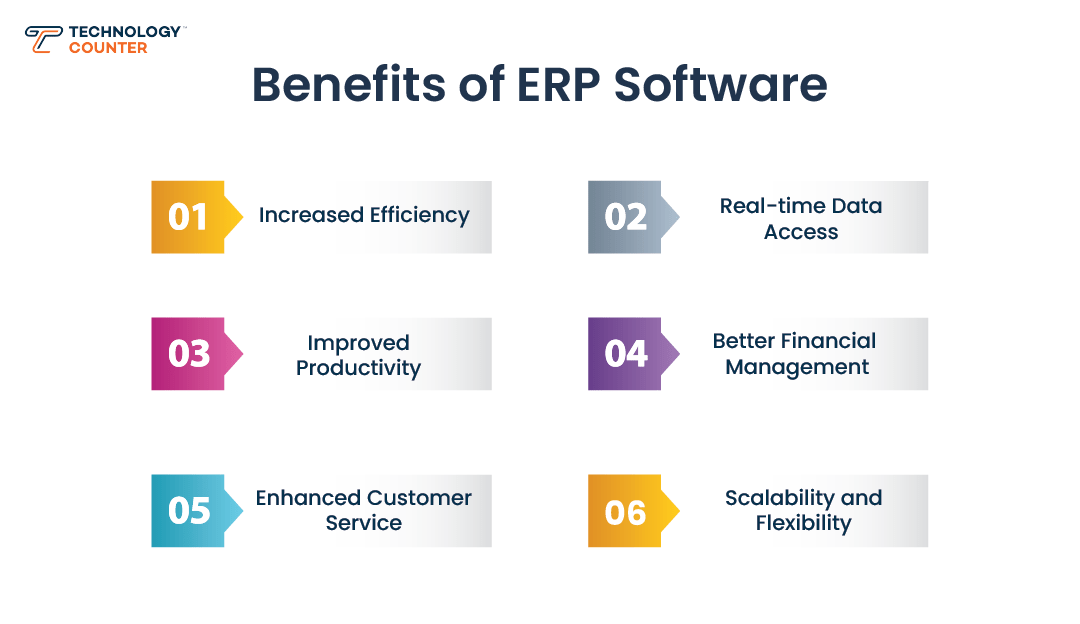
1. Increased Efficiency
- Streamlined Operations: Integrates all business processes into a single system, reducing redundancy and improving workflow.
- Automation: Automates repetitive tasks, freeing up employees to focus on strategic activities.
2. Real-time Data Access
- Informed Decision-Making: Provides real-time insights and analytics, enabling better and faster decision-making.
- Enhanced Visibility: Offers comprehensive visibility across all departments, improving coordination and management.
3. Improved Productivity
- Time Savings: Reduces the time spent on manual data entry and other repetitive tasks.
- Resource Optimization: Ensures optimal use of resources by aligning operations with business goals.
4. Better Financial Management
- Accurate Financial Reporting: Provides accurate and up-to-date financial data, aiding in precise financial planning and reporting.
- Cost Control: Helps in monitoring and controlling costs through better financial oversight and management.
5. Enhanced Customer Service
- Integrated CRM: Improves customer relationship management by integrating customer data and interactions into the best ERP software in India.
- Faster Response Times: Enables quicker response to customer inquiries and issues, enhancing customer satisfaction.
6. Scalability and Flexibility
- Growth Accommodation: Scales with your business, accommodating growth in users, transactions, and functionalities.
- Modular Expansion: Allows for easy addition of new modules and features as business needs evolve.
7. Regulatory Compliance
- Accurate Record-Keeping: Maintains detailed and accurate records, ensuring compliance with industry standards and regulations.
- Audit Trails: Provides audit trails that help in regulatory audits and reviews.
8. Cost Savings
- Long-term Savings: Reduces operational costs through improved efficiency and resource management.
- Reduced Errors: Minimizes costly errors by automating processes and providing accurate data.
9. Enhanced Collaboration
- Information Sharing: Facilitates better information sharing and collaboration across departments.
- Unified Platform: Provides a single platform for all business functions, promoting teamwork and cohesiveness.
10. Data Security
- Robust Security Measures: Ensures data security with advanced encryption, access controls, and regular backups.
- Data Integrity: Maintains the integrity and accuracy of data across all business processes.
Using the best ERP software in India brings numerous benefits that can significantly improve your business’s efficiency, productivity, and overall performance, making it a vital investment for long-term success.
ERP Software Market Trends in India
The ERP software market trends in India is moving toward cloud-based solutions, AI-powered analytics, and IoT connectivity for real-time data. There is also a rising emphasis on mobile accessibility, customization, and industry-specific solutions, making ERP systems in India more adaptable and necessary for the company.
Cloud-Based ERP Solutions
- Increased Adoption: More businesses are moving to cloud based ERP software due to their scalability, lower upfront costs, and remote accessibility.
- Hybrid Models: Combining on-premises and cloud solutions to balance control and flexibility.
Artificial Intelligence and Machine Learning
- Predictive Analytics: AI and ML are being integrated to provide predictive analytics, helping businesses forecast trends and make data-driven decisions.
- Automation Enhancements: Enhanced automation capabilities for tasks like data entry, anomaly detection, and process optimization.
Internet of Things (IoT) Integration
- Real-time Data Collection: IoT devices are being integrated with ERP software in India to collect real-time data from operations, improving efficiency and decision-making.
- Supply Chain Optimization: Better tracking and management of inventory and assets through IoT-enabled devices.
Mobile ERP Solutions
- On-the-go Access: Mobile-friendly ERP software allows users to access data and perform tasks from anywhere, increasing flexibility and productivity.
- Enhanced User Experience: Focus on developing intuitive mobile interfaces for ease of use.
Enhanced Data Security
- Advanced Security Features: Increasing emphasis on robust security measures, including encryption, multi-factor authentication, and regular security updates to protect sensitive business data.
- Compliance Management: Ensuring ERP systems are compliant with industry regulations and standards.
These trends reflect the ongoing evolution of ERP software in India as it adapts to new technologies, market demands, and business needs, driving greater efficiency, security, and flexibility in business operations.
What Business Tasks Can Be Optimized with ERP Software?
1. Financial Management
- Accounting: Automates accounts payable, accounts receivable, and general ledger functions.
- Budgeting and Forecasting: Streamlines budgeting processes and provides accurate financial forecasts.
- Financial Reporting: Generates comprehensive financial reports and statements in real time.
2. Human Resources Management
- Payroll Processing: Automates payroll calculations, deductions, and payments.
- Employee Records: Centralizes employee information, streamlining access and updates.
- Recruitment and Onboarding: Manages recruitment processes and onboarding of new employees efficiently.
3. Inventory and Supply Chain Management
- Inventory Tracking: Monitors stock levels, tracks inventory movements, and manages reorders.
- Procurement: Automates purchase orders and supplier management.
- Warehouse Management: Optimizes warehouse operations, including storage, picking, and shipping.
4. Sales and Marketing
- Order Management: Automates order processing and tracking from order placement to delivery.
- Customer Relationship Management (CRM): Manages customer data, sales pipelines, and customer interactions.
- Marketing Campaigns: Tracks and analyzes marketing campaigns, helping to optimize marketing strategies.
5. Production and Manufacturing
- Production Planning: Streamlines production schedules and resource allocation.
- Quality Control: Monitors quality standards and compliance throughout the production process.
- Bill of Materials (BOM): Manages BOMs and tracks materials required for production.
6. Project Management
- Project Planning: Facilitates project scheduling, resource allocation, and task management.
- Time Tracking: Monitors project timelines and employee time spent on tasks.
- Budget Management: Tracks project budgets and expenditures to ensure financial control.
7. Customer Service
- Support Ticket Management: Automates the handling and resolution of customer support tickets.
- Customer Feedback: Collects and analyzes customer feedback to improve service quality.
- Service Scheduling: Manages service appointments and field service operations.
8. Compliance and Risk Management
- Regulatory Compliance: Ensures compliance with industry regulations and standards.
- Audit Trails: Provides detailed audit trails for tracking changes and ensuring accountability.
- Risk Assessment: Identifies and mitigates business risks through automated risk management tools.
9. Data Management and Reporting
- Centralized Database: Centralizes data storage, ensuring consistency and accuracy across the organization.
- Customizable Reports: Generates customized reports tailored to specific business needs.
- Data Analytics: Provides advanced analytics and insights for better decision-making.
10. IT and System Management
- System Integration: Integrates various business applications and systems into a consolidated platform.
- Security Management: Implements robust security measures to protect business data.
- Maintenance and Upgrades: Simplifies system maintenance and upgrades, ensuring the software remains up-to-date.
By optimizing these tasks, ERP software enhances operational efficiency, reduces costs, and improves overall business performance, making it a valuable tool for any organization.
Selecting the Best ERP System in India
Choosing the best ERP software in India is a critical decision that can significantly impact your business's efficiency and growth. Here are key steps and considerations to guide you in selecting the best ERP in India:
1. Identify Your Business Needs
- Assess Current Processes: Evaluate your existing processes to identify inefficiencies and areas that need improvement.
- Define Requirements: List the specific features and functionalities your business needs in ERP software, such as financial management, inventory control, or CRM.
2. Set a Budget
- Cost Considerations: Determine your budget for ERP software, including implementation, training, and ongoing maintenance costs.
- ROI Analysis: Evaluate the potential return on investment by considering how the ERP system will improve efficiency and reduce costs.
3. Research ERP Vendors
- Vendor Reputation: Look for vendors with a proven track record and positive reviews from other businesses in your industry.
- Product Demos and Trials: Request demos and trial periods to get hands-on experience with the software and assess its usability.
4. Evaluate Key Features
- Core Functionality: Ensure the ERP software in India includes essential features such as financial management, HR, inventory, and supply chain management.
- Customization and Scalability: Choose a system that can be customized to your specific needs and can scale as your business grows.
- Integration Capabilities: Ensure the cloud ERP software can integrate seamlessly with your existing systems and third-party applications.
5. Consider Deployment Options
- Cloud vs. On-Premises: Decide whether cloud based or on-premises ERP software is best for your business. Cloud based systems offer flexibility and lower upfront costs, while on-premises systems provide more control.
- Hybrid Solutions: Evaluate hybrid models that combine cloud and on-premises features for a balanced approach.
6. Assess User Experience
- User-Friendly Interface: Choose an ERP system with an intuitive and easy-to-use interface to ensure quick adoption by your team.
- Mobile Accessibility: Consider systems that offer mobile access for on-the-go management and real-time data access.
7. Check Data Security
- Security Features: Ensure the ERP software has robust security measures, including data encryption, access controls, and regular backups.
- Compliance: Verify that the software complies with industry regulations and standards relevant to your business.
8. Vendor Support and Training
- Customer Support: Look for vendors that offer reliable and responsive customer support.
- Training Programs: Ensure comprehensive training programs are available to help your team effectively use the ERP software in India.
9. Evaluate Total Cost of Ownership (TCO)
- Upfront and Ongoing Costs: Consider all costs associated with the ERP system, including implementation, licensing, customization, training, and maintenance.
- Long-term Savings: Assess how the ERP software in India will generate long-term savings through improved efficiency and reduced operational costs.
10. Get References and Case Studies
- Customer References: Ask for references from the vendor’s existing customers to get insights into their experiences.
- Case Studies: Review case studies to understand how the ERP system has benefited other businesses in your industry.
11. Plan for Implementation
- Implementation Timeline: Develop a clear timeline for the ERP implementation process.
- Change Management: Prepare a change management plan to address any resistance and ensure smooth adoption across the organization.
By following these steps and carefully evaluating your options, you can select the best ERP software in India for your business that aligns with your business goals, enhances efficiency, and supports long-term growth.
Want to find the perfect ERP system tailored to your business needs? Contact our experts for a free consultation today!
Things to Be Considered Before Buying ERP Software
1. Understand Your Business Needs
- Assess Current Processes: Analyze your existing business processes to identify inefficiencies and areas needing improvement.
- Define Requirements: Create a detailed list of essential features and functionalities that your ERP software must have to meet your business objectives, such as financial management, inventory control, or CRM.
2. Budget and Cost Considerations
- Total Cost of Ownership (TCO): Calculate the full cost of the top ERP software, including initial purchase, implementation, training, customization, and ongoing maintenance.
- ROI Analysis: Evaluate the potential return on investment by considering how the ERP system will enhance efficiency and reduce costs in the long run.
3. Vendor Reputation and Experience
- Vendor Track Record: Research vendors with a strong reputation and positive reviews from other businesses in your industry.
- Product Demonstrations and Trials: Request demos and trial periods to experience the software firsthand and assess its suitability for your business needs.
4. Scalability and Customization
- Growth Potential: Choose an ERP system that can scale with your business growth, accommodating more users, transactions, and additional functionalities as needed.
- Customization Options: Ensure the software can be tailored to fit your specific business processes and requirements.
5. Integration Capabilities
- Existing Systems: Ensure the ERP software can seamlessly integrate with your existing systems, such as CRM, HRM, and e-commerce platforms.
- Third-Party Applications: Verify that the ERP solution can connect with other third-party applications your business uses, enabling a unified and efficient workflow.
6. Deployment Options
- Cloud vs. On-Premises: Decide whether a cloud-based or on-premises solution best suits your business. Cloud ERP software offers flexibility and lower upfront costs, while on-premises ERP provides greater control and customization.
- Hybrid Solutions: Consider hybrid models that offer a combination of cloud and on-premises features, providing a balanced approach to deployment.
7. User Experience and Training
- User-Friendly Interface: Select top ERP software with an intuitive and easy-to-navigate interface to ensure quick adoption and minimal training time for your employees.
- Training and Support: Ensure the vendor provides comprehensive training programs and reliable customer support to help your team effectively use the system and resolve any issues that arise.
By carefully considering these seven factors, you can make an informed decision when choosing the best ERP software that will meet your business needs, support your growth, and enhance your overall operational efficiency.
ERP Software Resources
Seeking more information about ERP software? Explore these essential resources to gain valuable insights and make informed decisions:
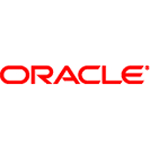
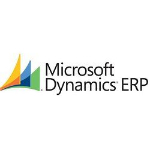
.png)



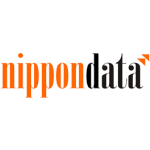
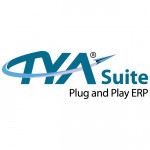


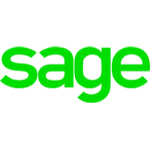
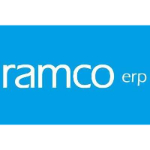
.png)
